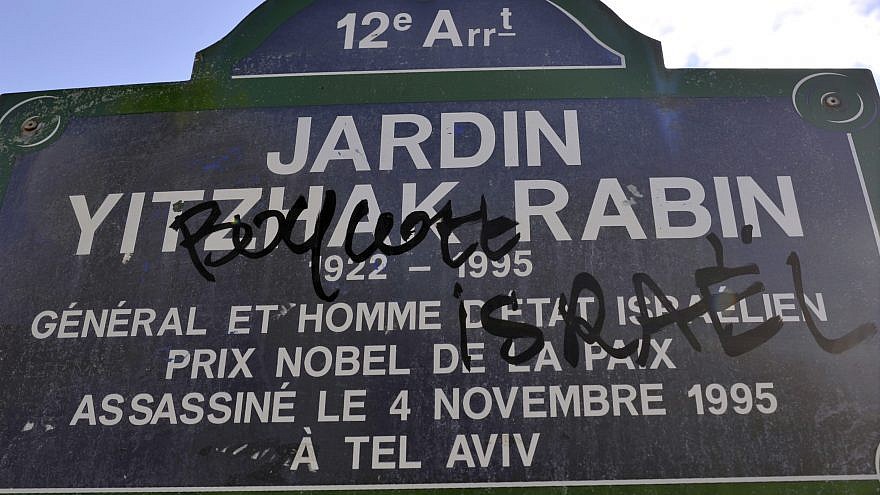Ahead of the European elections in May 2019, the European Jewish Association (EJA), a Brussels-based group representing Jewish communities across the continent, is launching a wide-ranging consultation of European Jewry in order to get agreement around a series of “red lines.”
The draft red lines, which include the exclusion from government of parties that espouse anti-Semitism as set out in the International Holocaust Remembrance Alliance (IHRA) definition, call on all political parties to pass binding resolutions rejecting the anti-Israel BDS movement as fundamentally anti-Semitic and to support freedom of religion, will be debated and voted on at the EJA’s flagship annual conference from Nov. 6-7 in Brussels.
“For Jews across Europe, the stakes in the forthcoming European elections have rarely been higher,” said EJA chairman and founder Rabbi Menachem Margolin.
He added: “We need to put down a clear marker of what we, who have formed part of Europe’s cultural fabric for almost 2,000 years, and who have suffered firsthand from Europe’s worst excesses, too, expect from those in power at this critical time.”
The draft red lines are:
- Political parties and their leadership must sign up to the full IHRA definition of anti-Semitism.
- Every European country must appoint a special government envoy on anti-Semitism where one already doesn’t exist
- All political parties pledge to exclude from government parties or politicians that espouse anti-Semitism as defined by the IHRA definition.
- All political parties to pass a binding resolution rejecting BDS activities as fundamentally anti-Semitic.
- All political parties to support in writing and in party documents their support for freedom of religion and freedom of practice at member-state level and E.U. level where applicable
For Rabbi Margolin, the stakes for Jews, who are already living in a febrile environment, “the stakes for Jews are higher than I can ever remember.”
“With the stock of ‘big tent’ political parties at an all-time low, and the rise in support for fringe parties of right and left, we are looking at a dramatically different political landscape post-election in which we all have to operate and live in. It will be one where the language of division and populist rhetoric will be in the ascendancy as never before,” he said.
He concluded: “This polarisation and its potential dangers affect all of us, whether you are affiliated to the EJA or not, and should supersede any inter or intra-organisational tensions or differences. It is in this spirit that we are reaching out to Jews of all backgrounds and persuasions for their opinions. These ‘red lines’ when passed will represent not our line in the sand, but our line in the concrete, and serve as a wake-up call to politicians that the very future of Jewish Europe is on the line here.”
The two-day EJA conference, which will take place in the European Parliament and in conference facilities, will be attended by E.U. officials, parliamentarians, ambassadors, Jewish leaders and special-interest groups.


























